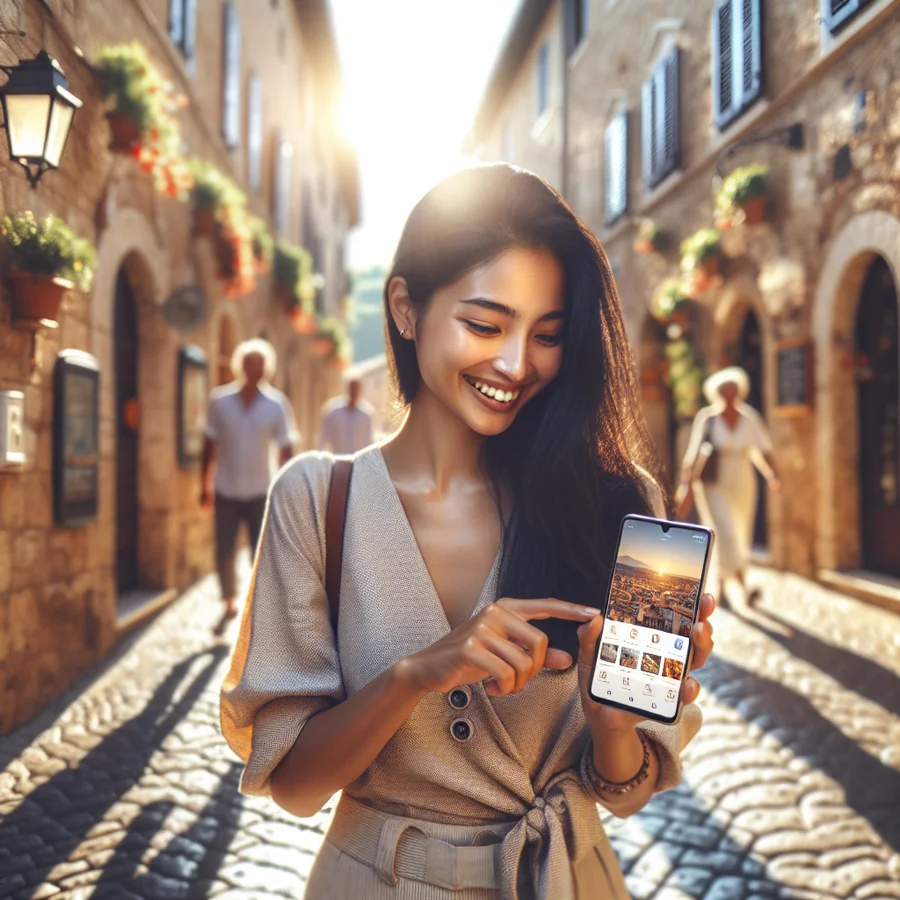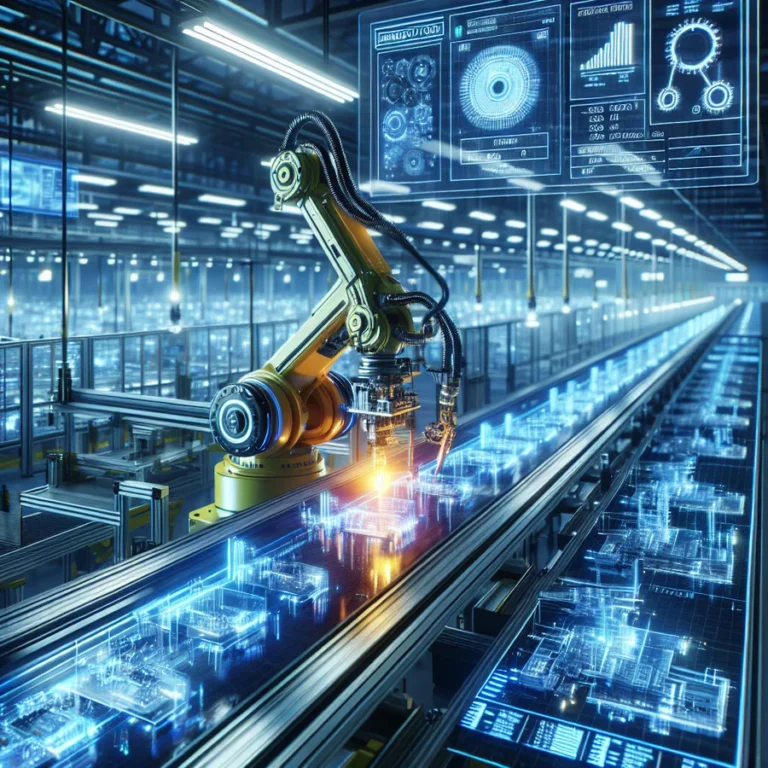AI in Tourism: Personalizing Recommendations and Enhancing Experiences
Are you dreaming of a vacation perfectly tailored to your tastes? Imagine a world where travel planning is effortless and every recommendation hits the mark. That’s the promise of AI in tourism. This guide explores how artificial intelligence is transforming the travel industry, making experiences more personalized and enjoyable.
AI in tourism is no longer a futuristic concept. It’s here, and it’s changing how we explore the world. From suggesting hidden gems to optimizing travel routes, AI is enhancing every step of the journey. Let’s dive into how AI is revolutionizing the tourism sector.
The Rise of AI in the Tourism Industry
Artificial intelligence (AI) is rapidly changing many industries. Tourism is one of the most exciting areas of transformation. AI offers incredible opportunities to personalize experiences and streamline operations. This leads to happier travelers and more efficient businesses.
AI refers to the ability of computers to perform tasks that typically require human intelligence. This includes learning, problem-solving, and decision-making. In the tourism industry, AI is used in various ways, from chatbots to predictive analytics.
Note: AI is not meant to replace human interaction entirely. Instead, it enhances it, allowing staff to focus on more complex and personalized customer service.
How AI is Personalizing Travel Experiences
One of the most significant impacts of AI in tourism is the ability to personalize travel experiences. AI algorithms can analyze vast amounts of data to understand individual preferences. This allows for tailored recommendations and customized itineraries.
Tailored Travel Recommendations with AI
Imagine receiving travel suggestions perfectly suited to your interests. AI makes this a reality by analyzing your past travel behavior, social media activity, and demographic information. It then suggests destinations, accommodations, activities, and dining options that match your unique tastes.
For example, if you frequently book hiking trips and enjoy trying local cuisine, an AI-powered system might recommend a hiking tour in the Swiss Alps with stops at traditional cheese farms. This level of personalization ensures you get the most out of your trip.
Reminder: The key to effective AI personalization is accurate and comprehensive data. The more information the AI has, the better it can understand your preferences and provide relevant recommendations.
Customized Itineraries Powered by AI
Forget generic travel plans! AI-driven tools can create bespoke itineraries based on your specific interests and needs. You can input your preferences, such as historical sites, adventure activities, or relaxation spots. AI algorithms then generate a detailed itinerary that maximizes your time and enjoyment.
These personalized itineraries consider practical aspects like travel time, peak hours, and weather conditions. This creates a seamless and efficient travel plan. For instance, if you’re visiting Rome in the summer, AI might suggest visiting the Colosseum early in the morning to avoid the midday heat and crowds.
Note: AI can also adapt itineraries in real-time based on changing conditions, such as flight delays or unexpected closures. This ensures you can smoothly navigate disruptions and continue to enjoy your trip.
Dynamic Pricing and Offers Using AI
Who doesn’t love a good deal? AI can analyze market trends, traveler behavior, and competitive pricing to dynamically adjust prices and create personalized offers. This ensures you receive the best possible deals tailored to your budget and preferences.
For example, AI can identify when you’re planning a trip and offer timely discounts on flights and hotels. This enhances the value proposition and increases customer satisfaction. Airlines and hotels use AI to predict demand and adjust prices accordingly, offering lower rates during off-peak seasons or to travelers who book in advance.
Reminder: Keep an eye out for AI-powered travel platforms that offer personalized deals based on your travel history and preferences. You might be surprised at the savings you can find!
Optimizing Travel with AI: Efficiency and Accuracy
AI isn’t just about personalization; it also significantly enhances the efficiency and accuracy of travel planning. By automating tasks and providing data-driven insights, AI helps travelers save time and make informed decisions.
Predictive Analytics for Smarter Travel Planning
Predictive analytics, powered by AI, can forecast travel trends and help you plan your trips more effectively. By analyzing historical data and current trends, AI can predict the best times to visit certain destinations, the likelihood of flight delays, and the busiest tourist seasons.
This information allows you to make informed decisions and optimize your travel plans to avoid potential pitfalls and enhance your overall experience. For example, AI might predict that visiting Venice in the spring will result in fewer crowds and better weather than visiting during the peak summer months.
Note: Predictive analytics can also help you find the best deals on flights and accommodations by identifying periods of low demand.
Real-Time Adjustments for Seamless Travel
Life happens, and travel plans can change unexpectedly. AI enables real-time adjustments to travel itineraries based on changing conditions. If a flight is delayed or a popular attraction is unexpectedly closed, AI systems can quickly suggest alternative plans.
This real-time adaptability ensures you can smoothly navigate disruptions and continue to enjoy your trip without significant setbacks. For instance, if your train is delayed, an AI-powered travel assistant can automatically rebook you on the next available train or suggest alternative transportation options.
Reminder: Look for travel apps and platforms that offer real-time alerts and automated rebooking options to minimize the impact of unexpected disruptions.
Efficient Route Planning with AI
Getting from point A to point B can be a challenge, especially in unfamiliar destinations. AI can optimize route planning for various modes of transportation, from flights and trains to car rentals and public transit. By analyzing traffic patterns, weather conditions, and other factors, AI can recommend the most efficient routes.
This reduces travel time and enhances convenience. This is particularly beneficial for travelers navigating unfamiliar destinations. It ensures they reach their destinations quickly and efficiently. Imagine an AI-powered navigation app that reroutes you around a traffic jam, saving you precious time and frustration.
Note: AI can also consider your preferences when planning routes, such as avoiding toll roads or prioritizing scenic drives.
Enhancing Customer Service with AI in Tourism
Exceptional customer service is crucial in the tourism industry. AI is transforming customer service by providing instant support, personalized communication, and streamlined problem resolution.
AI-Powered Chatbots and Virtual Assistants
Need help booking a flight at 3 AM? AI-powered chatbots and virtual assistants are transforming customer service in the travel industry. These intelligent systems can handle a wide range of inquiries, from booking flights and hotels to providing travel information and troubleshooting issues.
Available 24/7, they offer prompt and accurate responses, significantly improving customer satisfaction and reducing the workload on human agents. Think of a chatbot that can answer your questions about visa requirements or help you find the best restaurants in a new city.
Reminder: While chatbots are helpful for routine inquiries, complex issues may still require human intervention. Look for chatbots that offer seamless transitions to human agents when needed.
Personalized Communication Through AI
Generic emails are a thing of the past. AI enhances customer service by personalizing communication. By analyzing customer data, AI can tailor interactions to individual preferences and needs. For instance, AI can send personalized emails with travel suggestions, updates, and special offers, ensuring that communication is relevant and engaging.
This level of personalization fosters a stronger connection between travelers and travel providers, enhancing loyalty and satisfaction. Imagine receiving an email suggesting a weekend getaway to a destination you’ve previously expressed interest in.
Note: Personalized communication can also include tailored recommendations for activities and attractions based on your past travel experiences.
Streamlined Problem Resolution with AI
Dealing with travel-related issues can be stressful. AI’s advanced problem-solving capabilities enable quicker and more efficient resolution of travel-related issues. When problems arise, such as flight cancellations or lost luggage, AI systems can analyze the situation, identify the best course of action, and communicate with the necessary parties to resolve the issue promptly.
This minimizes inconvenience for travelers and ensures a smoother travel experience. For example, if your flight is cancelled, an AI system can automatically rebook you on the next available flight and arrange for a hotel room if needed.
Reminder: AI can also track your luggage in real-time and provide updates on its location, reducing the anxiety associated with lost or delayed baggage.
AI Enhancing Operational Efficiency in Tourism
Beyond customer-facing applications, AI is also revolutionizing the operational side of the tourism industry. By automating processes, predicting maintenance needs, and optimizing resource allocation, AI is helping travel companies operate more efficiently and effectively.
Automated Processes for Seamless Operations
From booking to check-in, AI streamlines various operational processes within the travel industry. Automation reduces human error, speeds up processes, and frees up staff to focus on more complex tasks that require a human touch. This results in a more efficient and hassle-free travel experience for customers.
For instance, AI-powered check-in kiosks can process passengers quickly and efficiently, reducing wait times at airports. Similarly, automated baggage handling systems can sort and route luggage with greater accuracy and speed.
Note: Automation also extends to back-office functions, such as accounting and data analysis, freeing up staff to focus on strategic initiatives.
Predictive Maintenance for Reliable Travel
Nobody wants their vacation disrupted by equipment breakdowns. AI’s predictive capabilities extend to the maintenance of travel infrastructure and vehicles. By analyzing data from sensors and other sources, AI can predict when maintenance is needed, preventing breakdowns and delays.
This ensures that planes, trains, buses, and other transportation modes operate smoothly, enhancing reliability and safety for travelers. For example, AI can analyze engine performance data to identify potential issues before they lead to breakdowns, allowing for proactive maintenance.
Reminder: Predictive maintenance not only improves reliability but also reduces maintenance costs by preventing costly repairs and downtime.
Resource Allocation Optimized by AI
Efficient resource allocation is crucial for travel companies. AI helps travel companies optimize resource allocation by analyzing patterns and predicting demand. For example, AI can forecast peak travel periods and allocate staff and resources accordingly, ensuring that customer service is not compromised during busy times.
This leads to better management of resources, cost savings, and improved customer satisfaction. Airlines can use AI to optimize flight schedules and crew assignments, ensuring that flights are adequately staffed and that resources are used efficiently.
Note: AI can also help hotels optimize staffing levels at different times of the day, ensuring that there are enough employees to handle check-ins, room service, and other customer requests.
AI for Enhanced Safety and Security in Tourism
Safety and security are paramount concerns in the tourism industry. AI is playing an increasingly important role in detecting fraud, monitoring safety parameters, and enhancing overall security measures.
Fraud Detection Powered by AI
Protecting against fraud is essential for both travelers and travel companies. AI’s advanced algorithms can detect fraudulent activities in the travel industry, such as payment fraud and identity theft. By analyzing transaction patterns and identifying anomalies, AI can flag suspicious activities and prevent fraud before it occurs.
This enhances the security of online transactions and builds trust between travelers and service providers. For example, AI can detect unusual credit card transactions or identify fake travel documents.
Reminder: AI-powered fraud detection systems are constantly learning and adapting to new fraud techniques, making them highly effective at preventing fraud.
Safety Monitoring with AI
Staying informed about potential risks is crucial for safe travel. AI can monitor various safety parameters, such as weather conditions, geopolitical situations, and health advisories, providing travelers with real-time updates and alerts. This ensures that travelers are well-informed about potential risks and can take appropriate measures to stay safe.
AI can also assist in emergency situations by providing critical information and facilitating communication with authorities. For instance, AI can alert travelers to severe weather conditions or provide guidance on how to evacuate an area in the event of a natural disaster.
Note: AI-powered safety monitoring systems can also track disease outbreaks and provide travelers with information on how to protect themselves from infection.
Challenges and Ethical Considerations of AI in Tourism
While AI offers numerous benefits, it’s important to acknowledge the challenges and ethical considerations associated with its use in tourism. Addressing these issues is crucial for ensuring that AI is used responsibly and ethically.
One key challenge is data privacy. AI systems rely on vast amounts of personal data to function effectively. This raises concerns about how this data is collected, stored, and used. It’s essential to implement robust data protection measures and comply with privacy regulations like GDPR.
Another ethical consideration is the potential for bias in AI algorithms. If AI systems are trained on biased data, they can perpetuate and amplify existing inequalities. It’s important to ensure that AI algorithms are fair and unbiased, and that they don’t discriminate against certain groups of people.
Finally, there are concerns about the impact of AI on employment in the tourism industry. While AI can automate certain tasks, it’s important to ensure that workers are not displaced and that they have opportunities to retrain and acquire new skills.
The Future of AI in Travel and Tourism
The integration of AI in travel and tourism is still in its early stages, with immense potential for future advancements. As AI technology continues to evolve, it will further enhance the personalization, efficiency, and safety of travel experiences.
One future trend to watch for is enhanced personalization. Future AI systems will offer even deeper levels of personalization, anticipating traveler needs before they are expressed. By leveraging more sophisticated data analytics and machine learning, AI will create hyper-personalized travel experiences that cater to individual preferences in real-time.
Another trend is seamless integration. AI will become more seamlessly integrated into all aspects of the travel experience. From AI-powered travel assistants that accompany travelers throughout their journey to smart environments that adapt to individual preferences, the future of travel will be characterized by a high degree of automation and customization.
Finally, AI will play a key role in promoting sustainable travel practices. By optimizing travel routes, reducing waste, and promoting eco-friendly options, AI can help minimize the environmental impact of travel. This aligns with the growing demand for sustainable travel options and enhances the overall appeal of destinations committed to environmental stewardship.
Conclusion
AI in tourism is revolutionizing how we experience the world. From personalized recommendations to streamlined operations, AI is enhancing every aspect of the travel journey. By embracing AI, the tourism industry can create more engaging, efficient, and sustainable experiences for travelers. As AI technology continues to evolve, the future of travel promises to be more personalized, seamless, and enjoyable than ever before.
FAQs About AI in Tourism
How does AI personalize travel recommendations?
AI analyzes your past travel behavior, social media activity, and demographic information to suggest destinations, accommodations, activities, and dining options that match your unique tastes.
Can AI help me find the best deals on flights and hotels?
Yes, AI can analyze market trends, traveler behavior, and competitive pricing to dynamically adjust prices and create personalized offers, ensuring you receive the best possible deals.
How does AI improve customer service in the tourism industry?
AI-powered chatbots and virtual assistants provide instant support, personalized communication, and streamlined problem resolution, improving customer satisfaction and reducing the workload on human agents.
What are some of the ethical considerations associated with AI in tourism?
Key ethical considerations include data privacy, potential bias in AI algorithms, and the impact of AI on employment in the tourism industry.
How is AI being used to enhance safety and security in tourism?
AI is used for fraud detection, safety monitoring, and enhanced security measures, such as biometric identification systems at airports and borders.






